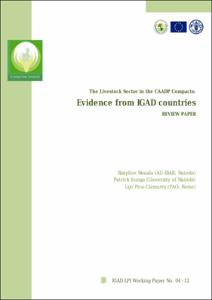Location
P.O. Box 2653
IGAD: its history and development
The Intergovernmental Authority on Development (IGAD) in Eastern Africa was created in 1996 to supersede the Intergovernmental Authority on Drought and Development (IGADD) which was founded in 1986 to mitigate the effects of the recurring severe droughts and other natural disasters that resulted in widespread famine, ecological degradation and economic hardship in the region. Djibouti, Ethiopia, Kenya, Somalia, Sudan and Uganda - took action through the United Nations to establish the intergovernmental body for development and drought control in their region. Eritrea became the seventh member after attaining independence in 1993 and in 2011 South Sudan joined IGAD as the eighth member state.
With the new emerging political and socio-economic challenges, the assembly of Heads of State and Government, meeting in Addis Ababa in April 1995, resolved to revitalize IGADD and expand areas of cooperation among Member States. The new and revitalized IGAD was launched during the 5th Summit of IGAD Assembly of Heads of State and Government held on 25-26 November 1996 in Djibouti. The Summit endorsed the decision to enhance regional cooperation in three priority areas of food security and environmental protection, economic cooperation, regional integration and social development peace and security.
IGAD Vision and Mission Statements
The founding leaders of IGAD were motivated by a vision where the people of the region would develop a regional identity, live in peace and enjoy a safe environment alleviating poverty through appropriate and effective sustainable development programmes. The IGAD Secretariat as the executive body of the Authority was given the mandate to achieve this goal.
Vision: IGAD to be the premier Regional Economic Community (REC) for achieving peace and sustainable development in the region.
Mission: Promote regional cooperation and integration to add value to Member States’ efforts in achieving peace, security and prosperity.


